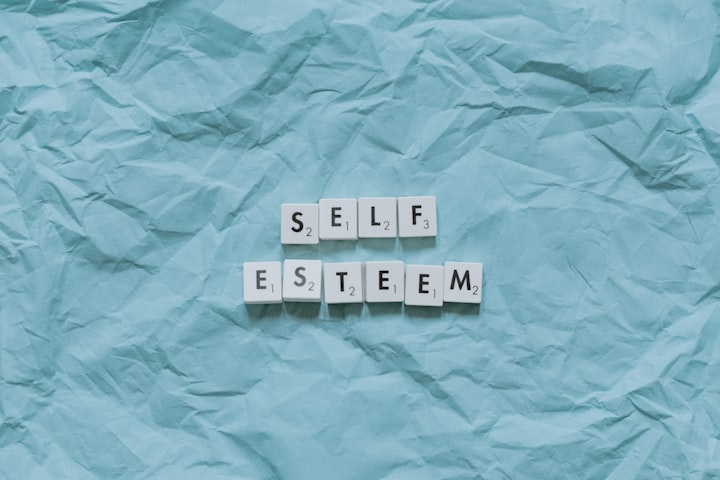5 Soft Skills That Are Used in Daily Life
Many people believe that soft skills are not as important as hard skills or technical knowledge. I think it’s time to prove them wrong!

When was the last time you got graded for your time management or adaptability skills? What was that? You weren’t taught? I wasn’t either; however, I picked up a few helpful tips and strategies in my day-to-day life.
The term “soft skills” is typically used when describing skills suitable for employees to succeed in the workplace. However, these skills are also essential in our personal lives.
You may not know it, but you always use soft skills. In fact, they’re probably more important than your hard skills (the ones that are measurable and quantifiable). Here are five soft skills that I find myself using on a daily basis:
What Are Soft Skills and Why Are They Important
Soft skills also called “emotional intelligence,” are interpersonal skills, social cues, attributes, and personality traits. Soft skills are often significantly undervalued, unlike the area of hard skills.
People need more experience in qualified jobs, primarily focusing on soft skills. High schools and colleges dedicate more attention to academic subjects, often resulting in students needing help understanding how to communicate correctly or work cohesively with others in an organizational setting.
We’re living in an era where people with essential soft-skills education are prized more than ever before. Still, there’s one major drawback — businesses can’t find employees because these fundamental abilities need to be trained more closely alongside technical skill sets.
Employers now understand that someone with a 4.0 GPA and no people skills will not be as successful as someone with a 3.5 GPA and excellent communication skills.

A lot goes into being successful at any workplace — but it all starts from within!
Soft skills are notoriously difficult to evaluate, define and measure. This is likely because there are no one-size fits all definitions for what they entail or how someone can develop them over time which has made it even more overlooked than hard skills.
Imagine being in a conversation where you are unsure how your friend feels about something. It would be frustrating, right? That’s why we communicate with friends and family daily to see what they think or feel so that interaction between us will go more smoothly!
Have you ever had a conversation where the other person didn’t understand what you were saying? That’s because, more often than not, we need to put more effort into explaining ourselves coherently.
I’ve always been a firm believer in the saying, “You can be the smartest person in the room, but if you can’t communicate or work well with others, you won’t get very far.”
In addition, soft skills are as, if not more important, than hard skills. And in today’s ever-changing landscape, it’s more important than ever to have a set of skills that you can rely on no matter the situation.
The 5 Soft Skills
It’s hard to say if one skill is more critical than another, primarily because they work hand in hand together a lot of times. Developing your skills is like a house of cards. If one skill falls, the whole building could come crashing down around you, and it’s challenging to recover from that type of destruction.
As such, if you’re looking at adding more focus on your soft skills to create an impactful life, you should likely consider building up these five crucial abilities:

1. Communication skills
Throughout our lives, communication will always be one of the best ways to connect with others. It allows us to exchange information and build relationships while developing empathy for the opposite party!
Communication is key in every stage of life, whether you’re talking with your partner or friends about what movie will be on Netflix tonight. By communicating openly, we open up new possibilities for both parties involved!
How many people do you communicate with on a daily basis? Probably a lot more than people did even 20 years ago.
Today, there are more ways to communicate than ever before. Email and text messages have become a staple in our day-to-day lives; we use them for everything from work emails (CCing relevant parties) all the way down to DIARY updates! And with social media platforms like Facebook emerging as an increasingly popular form of communication among young people, it’s evident that our ability to communicate is more important than ever.
2. Good Decision Making
Whether personal or professional, you’re constantly making decisions in any situation. Some are small, like what to wear to work, while others can be life-changing, like whether or not to move to a new city.
Have you ever thought about the process you go through when making a decision? Do you consider all of your options before making a decision, or go with your gut feeling?
There’s no wrong answer here, but it’s important to be aware of the different ways you can approach making decisions. Some people are more comfortable taking risks, while others prefer to play it safe.
The important thing is that you can make decisions quickly and efficiently without second-guessing yourself too much. After all, overthinking things can often lead to more anxiety and stress!
If we stick to our decisions, we will go to any length to prevent the less ideal option. However, if there are really terrible repercussions to our decision, is it worth it?
Having a choice with harmful consequences not only drives people away from us but also prohibits us from discovering new opportunities and being successful.
It can be tough to decide when there are two apparently right choices. We want to pick the one answer and move on with life, but that’s not always how it works. As humans, we like closure, so everything doesn’t feel uncertain.
However, this often leads us to follow our opinion even if we initially have doubts blindly.
3. Negotiation skills
Negotiation skills are qualities that allow two or more sides to reach a compromise. They aren’t typically looked at as a soft skill, or they combine it with communication which is part of it but is a separate thing altogether.
In every negotiation, there are three key things to consider:
1. Your goals and objectives
2. The other side’s goals and objectives
3. The area of compromise between the two parties
It’s important to remember that only some negotiations will end in a win-win situation. Sometimes, you may have to give up something in order to get what you want.
The important thing is that you’re able to come to an agreement that works for both parties involved. This can be done by being open to compromise and understanding the other side’s point of view.
By seeing both sides and hearing out the pros and cons, we can make a more informed decision that leaves us feeling confident rather than regretful.
4. Time Management
Time management is one of the most critical factors in people’s ability to get what’s important down effectively. Without it, you’re like a chicken without a head running around doing things at random and on impulse without accuracy.
There are two types of time management:
1. Personal time management is how you manage your own time. This includes setting deadlines, making to-do lists, and creating a daily/weekly schedule.
2. Professional time management is how you manage your time at work. This includes knowing when to delegate tasks, being efficient with meetings, and avoiding procrastination.
Both work hand in hand because if you need to improve at managing your time personally, it will also show up in your professional life.
Time management is a challenging task, but it’s necessary if you want to get things done in a timely and efficient manner. Effective use of your time can help avoid procrastination which will lead only to stress or anxiety from being unable to do what needs to completing on schedule!
Most people have experienced having too much to do and not enough time to do it. This is where time management skills come in handy. By learning to prioritize and plan ahead, you can make the most of your time and get things done without feeling overwhelmed.
5. Discipline
The future is something that people should think about more than they do, but it’s also one of the first things to be sacrificed in favor of our present. Discipline provides us with rules and consequences so we can align ourselves towards achieving goals while sticking to them when times get tough or tempting distractions to appear around us — all without sacrificing who you are as an individual!
It’s been said that “discipline is the bridge between goals and accomplishment.” This is because it helps to keep you focused on your goals and gives you the strength to stick to them even when things get tough.
Without discipline, it’s easy to give up on your goals or take shortcuts that might jeopardize your chances of success. So if you want to achieve something, ensure you have the discipline to see it through!

How To Improve Your Soft Skills
The great thing about soft skills (depending on how you look at them) is that the path to improving them is long and, some say, never-ending, which means you always have room to grow and improve.
By this point, you might ask, “how do I improve my soft skills to where I’d like them to be?”
I’m glad you asked!
Figure Out Your Current Capabilities: The first step is to identify what areas you’re already strong in and why then what areas you are weak in and why. This approach lets you objectively examine what soft skills you need to prioritize over others.
How you organize your list should be primarily on the path of reaching whatever goal you’ve given yourself. Ask others around you what they consider you to be strong or weak in as well.
Become More Conscious of Your Actions: Whenever you find yourself in a situation where you have to use a soft skill (which is most likely more than 50% each day), turn off your inner autopilot and put more thought into the situation and how you will react or respond. That’s most beneficial.
For example, if you’re engaging in a typical conversation, practice your communication skills and listen to what they are saying rather than thinking about the next thing you’re going to say. When the conversation is over, reflect on it and see what part you could’ve done differently or better and where you think you did well.
Take Action: The quick and most straightforward way to improve your soft skills is, fortunately, by actually being in more situations where you can practice them. Sure, you can watch many videos on how to build discipline or good decision-making, but if you don’t apply what you learn to real-life action, you’ll probably be discouraged by the lack of progress.
The Bottom Line
Soft skills are too crucial in daily life to be disregarded as much as people typically do. They’re how people conduct themselves, treat others, and approach life. Just take it one step at a time and monitor your relationships. If you work to develop these skills further, you will see significant improvement in your relationship with others and life overall.
____________________________________________________
Why not read a story like this for YOUR business and get my support as an exciting B2B Mindfulness Copywriter? Check out the website for more information.
About the Creator
Jerrell John
A visionary constructing his life purpose as an Author/Educator by building an impactful personal brand (& documenting the process).
Reader insights
Outstanding
Excellent work. Looking forward to reading more!
Top insight
Expert insights and opinions
Arguments were carefully researched and presented






Comments (1)
These are important soft skills that one must learn to master. Especially Discipline, which is “discipline is the bridge between goals and accomplishment.” With good self discipline, one will stay focus and be able to achieve your desired goals.